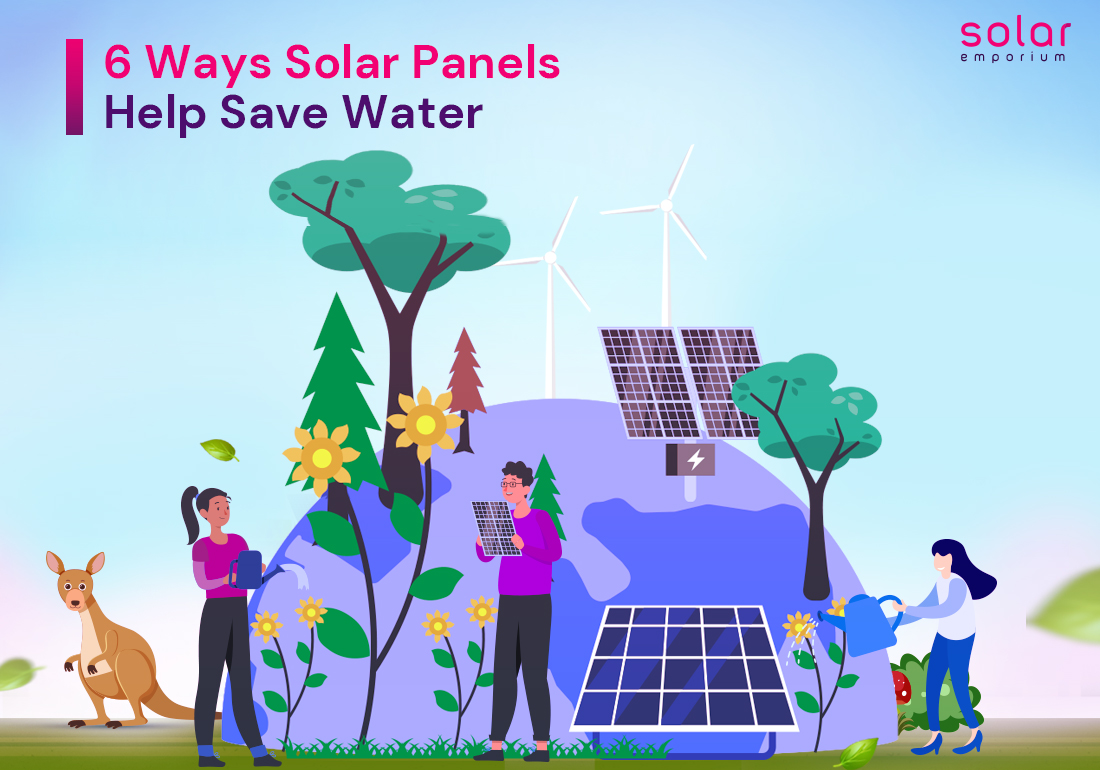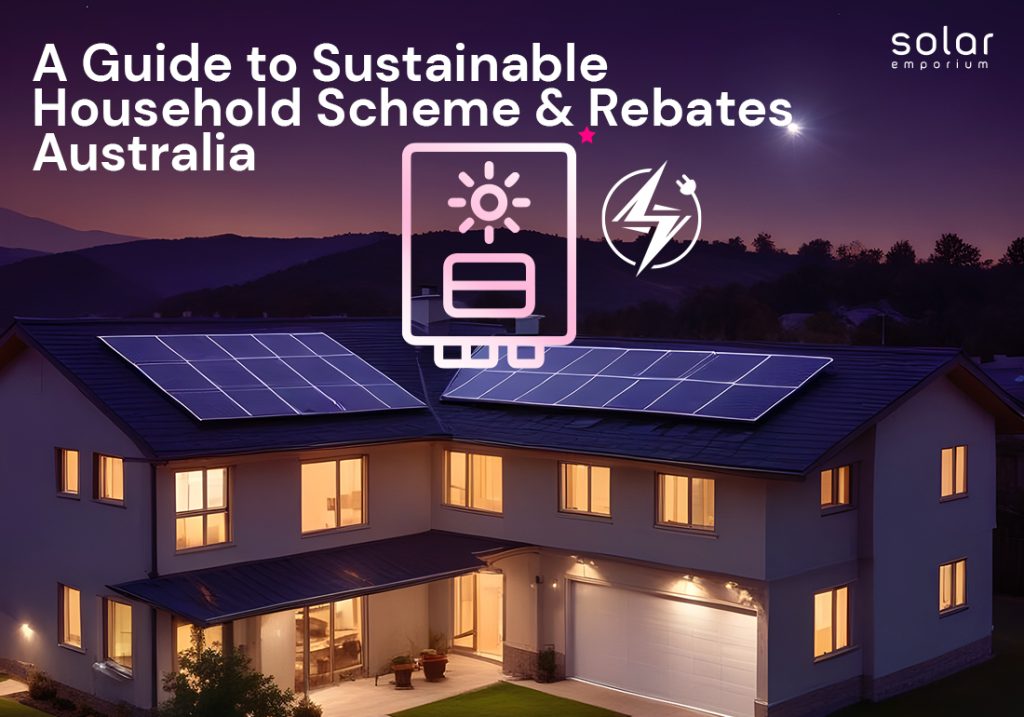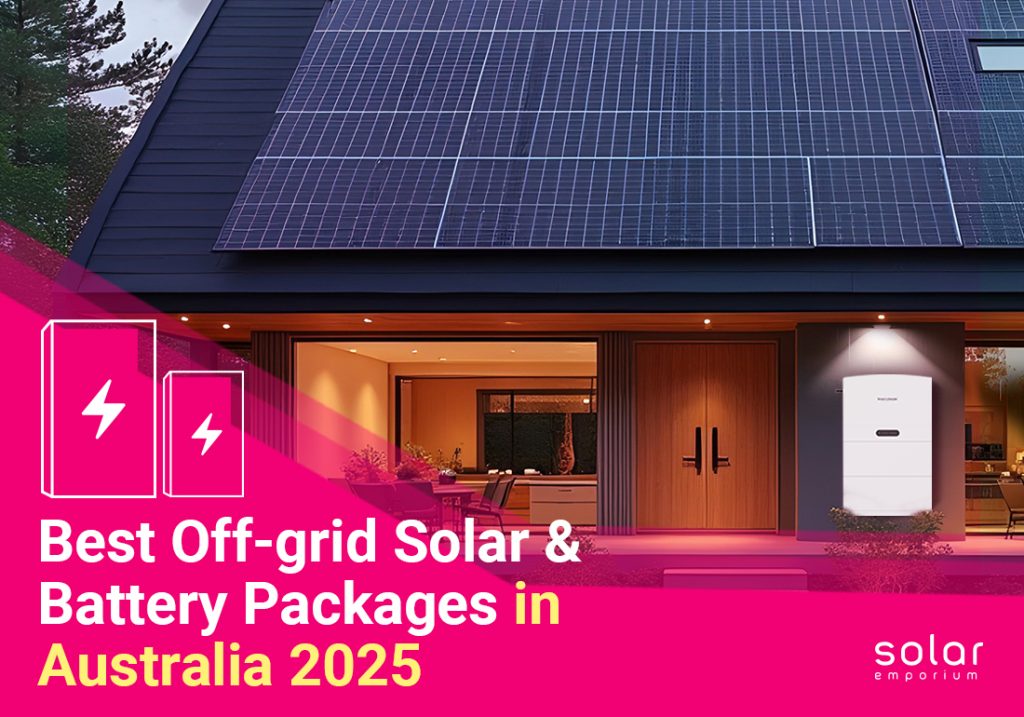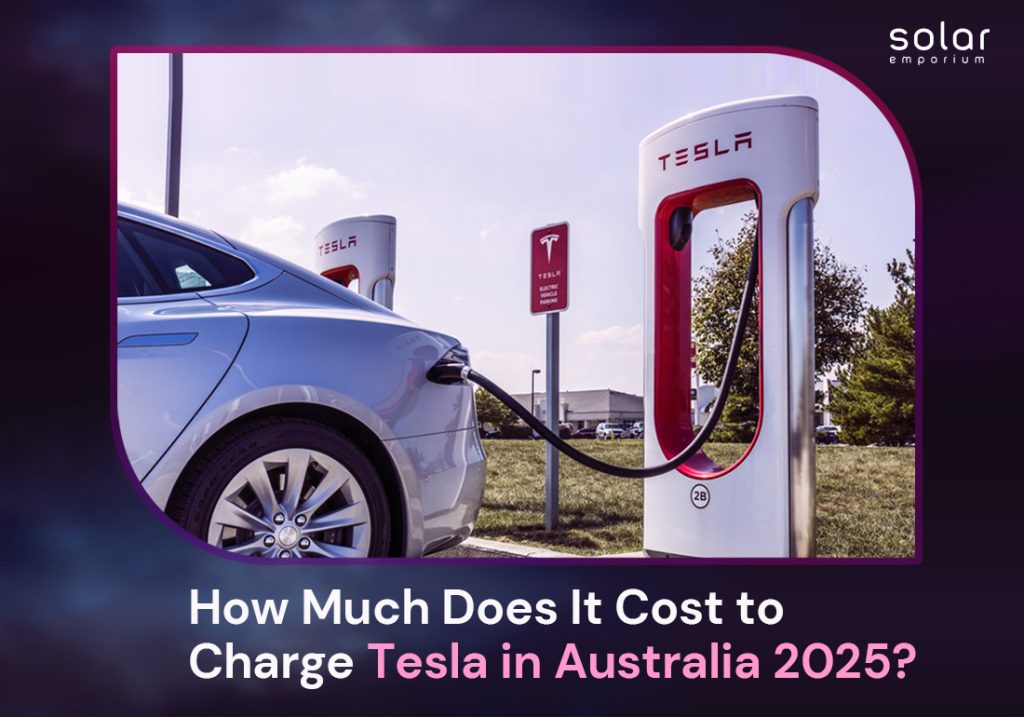As corporations and individuals increasingly prioritise environmental responsibility and seek innovative ways to conserve energy, solar power is gaining widespread popularity for various reasons.
Beyond the cost savings on electricity, it proves to be both more efficient and environmentally friendly. And we have found 6 ways solar panels help save water.
Unlike traditional power sources such as coal, natural gas, or nuclear energy, solar panels directly harness electricity from sunlight. It eliminates the need for water in the generation process.
In contrast to power plants that rely on significant water consumption for cooling and steam production.
So what are the 6 ways solar panels help save water? Let’s find out.
Water Reservation
Solar energy contributes to water conservation by fundamentally minimising its water requirements. Compared to coal mining and gas extraction, solar energy operations are notably less water-dependent.
Traditional methods, such as coal mining plants and hydraulic fracking operations, consume staggering amounts of water daily during production. Millions of gallons of water are utilised in these processes, leading to significant environmental concerns.
The distinctive advantage of solar panels lies in their ability to generate energy without any need for water.
Unlike their counterparts, solar energy systems bypass the consumption of water during electricity generation. This contrast makes the substantial volume of water used in coal mining and fracking operations appear disproportionately excessive.
Moreover, the water utilised in these traditional processes often becomes contaminated, exacerbating environmental challenges.
In essence, solar energy provides a sustainable and clean source of power but also plays a crucial role in conserving water resources.
By eliminating the substantial water demands associated with conventional energy production methods, solar energy contributes to a more environmentally responsible and water-efficient energy landscape.
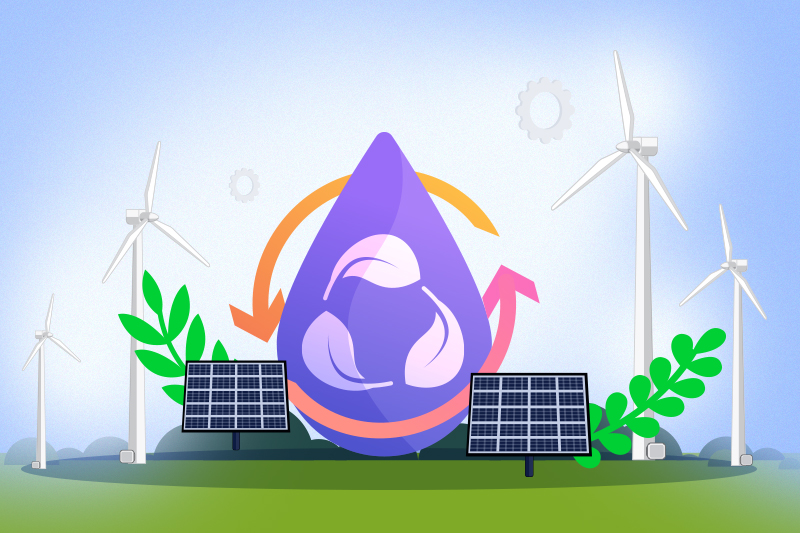
Solar Panels Require No water to Generate Electricity
Solar panels require zero water for power generation, a stark contrast to conventional electric power plants that heavily rely on substantial water quantities for their cooling processes.
Power plants account for 45 per cent of total water withdrawals, 38 per cent of total freshwater withdrawals, and 51 per cent of fresh surface-water withdrawals across all applications.
In contrast, solar panels operate without the need for cooling mechanisms and, consequently, without water needs.
A report from the International Renewable Energy Agency (IRENA) highlights that the water consumption for producing a unit of electricity using solar panels is as minimal as 1/200th of that used by a typical power plant.
Illustrating the significant impact of solar energy on water conservation, Solar Emporium’s solar panel systems were proven successful in a short period.
Solar Panel Production Takes Less Water
Although the production of solar panels involves some water usage, ongoing advancements in efficiency and recycling are progressively reducing their water intensity.
Like any industrial process, the manufacturing of solar panels incorporates water, but employing intelligent methods in industrial production—such as enhanced efficiency and recycling practices—can significantly mitigate the water footprint and environmental effects.
For instance, Solar Emporium anticipates that many newly established solar panel manufacturing facilities will achieve a 70% water recycling rate once fully operational. Notably, water recycling and efficiency measures have contributed to a remarkable 43% reduction in water consumption over four years.
Both wind and solar panel technologies exhibit remarkably low water usage. These panels operate without any water consumption throughout their operational lifespan.
Charging Electric Vehicles Uses Less Water

Utilising solar panels to power an electric vehicle results in lower water consumption compared to fuelling a car with petrol or biofuels. Opting for solar power minimises your water footprint and also extends these water-saving benefits to your journeys on the road.
Solar power generation possesses a relatively modest lifecycle water footprint, making the operation of an electric car powered by solar panels notably water-efficient, especially when contrasted with petrol—an oil-derived fuel predominant in contemporary vehicles.
Similar to coal and natural gas, the extraction, and processing of oil demand substantial water resources.
Liquid biofuels, such as ethanol, also contribute to significant water usage in the cultivation and processing of energy crops. Our calculations indicate that producing a single gallon of corn-based ethanol may entail over two hundred gallons of water consumption.
For individuals conscious of water conservation, opting for a solar-powered electric vehicle emerges as a prudent choice in promoting water savings.
Floating Solar Panel Saving More Water Than We Think
The adoption of floating solar panels, also known as “floatovoltaics,” is gaining popularity globally, extending from Napa to Japan.
These innovative solar farms strategically placed on reservoirs and large water bodies contribute to the generation of clean power and also offer an additional environmental benefit by curbing evaporation.
This approach has been demonstrated effectively in various locations, such as a vineyard in Napa that installed floating panels on an irrigation reservoir.
Beyond providing power to the vineyard, this initiative remarkably reduced evaporation by an impressive 70%.
The significance of this water-saving aspect becomes apparent when considering the potential impact of uncontrolled evaporation on bodies of freshwater.
By partially covering water surfaces with floating solar panels, not only is clean energy generation increased, but the reduction in evaporation also helps in mitigating the losses of freshwater resources.
This dual benefit underscores the potential of floatovoltaics as an innovative and environmentally sustainable solution to both energy generation and water conservation challenges.
Water Management and Maintenance Through Solar Panels
Solar panels play a crucial role in enhancing water management and efficiency for local water districts. A significant portion of the operating budget for water utilities, particularly those involved in treating drinking water, is allocated to energy expenses.
It not only aids in reducing energy costs but also contributes to the preservation and enhancement of water resources in several ways.
Firstly, water facilities powered by solar energy alleviate the reliance on electricity from water-intensive power plants, thus reducing the overall demand for water resources for energy production.
Secondly, by cutting down on energy expenses through solar energy adoption, water utilities can redirect resources towards endeavours that enhance water efficiency and incorporate advanced water technology.
This positive development benefits all water consumers, as it enables the implementation of measures geared towards improved water management and the integration of state-of-the-art technologies in water treatment facilities.
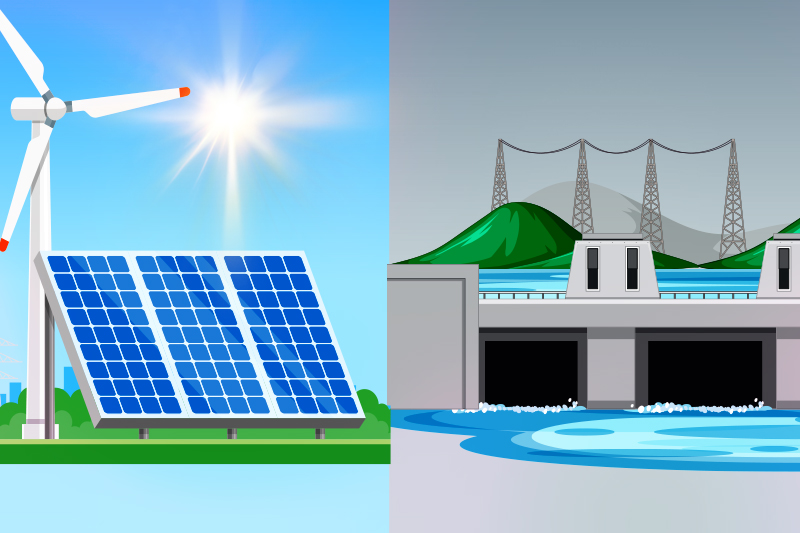
Other Ways Solar Panels are Helping Reserve Water
- Solar-powered water Heating Systems/Heat Pump
- Solar Desalination
- Solar-Powered Irrigation
- Solar-Powered Water Purification
- Water Tank Systems Powered by Solar Energy
- Solar-Powered Water Monitoring
- Off-Grid Solar Systems for Water
Embrace Solar Energy with Solar Emporium
Embrace the future of sustainable energy with Solar Emporium, your premier destination for all solar energy needs.
At Solar Emporium, we are dedicated to empowering individuals and businesses to make the switch to clean, renewable energy sources.
With a commitment to environmental responsibility and cutting-edge technology, Solar Emporium offers a comprehensive range of solar solutions tailored to meet diverse energy requirements.
Our team of experienced professionals ensures seamless integration, from solar panel installation to ongoing support. What sets Solar Emporium apart is our unwavering dedication to customer satisfaction, quality products, and cost-effective solutions.
We prioritise transparency and education, guiding our customers through the process of harnessing solar power for a more sustainable and efficient future.
Choose Solar Emporium to embark on a journey towards cleaner, greener energy and join the growing community contributing to a brighter and eco-friendly tomorrow.
